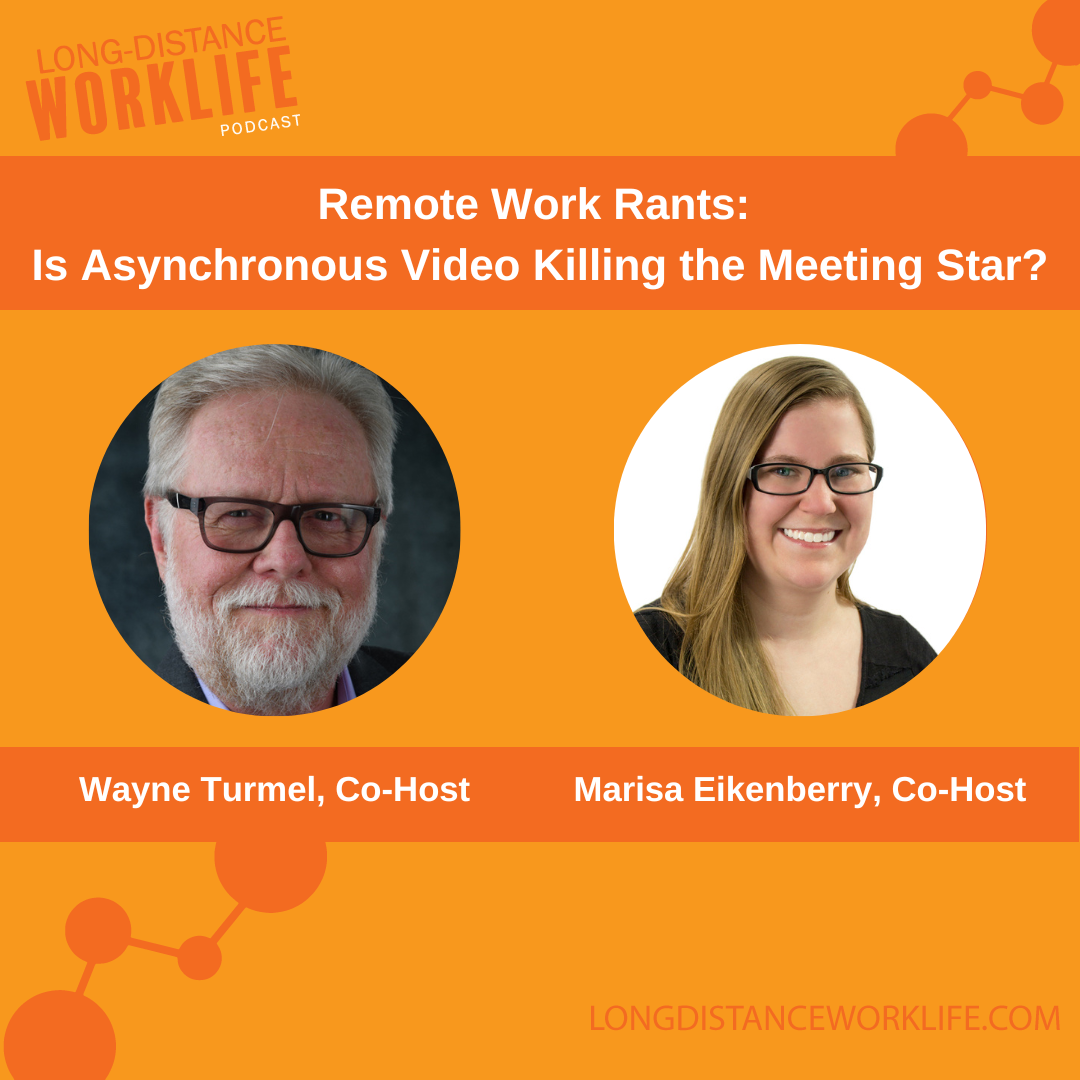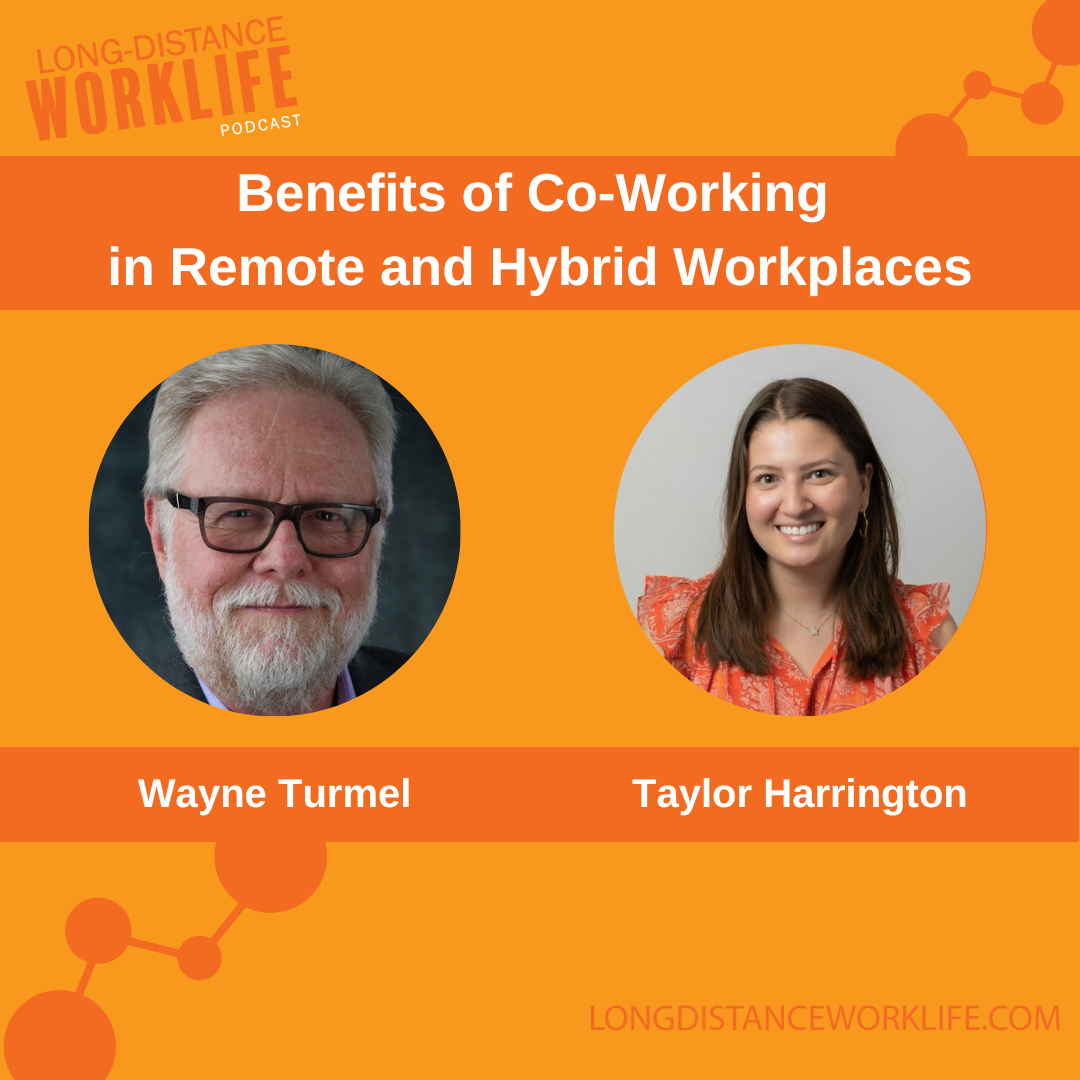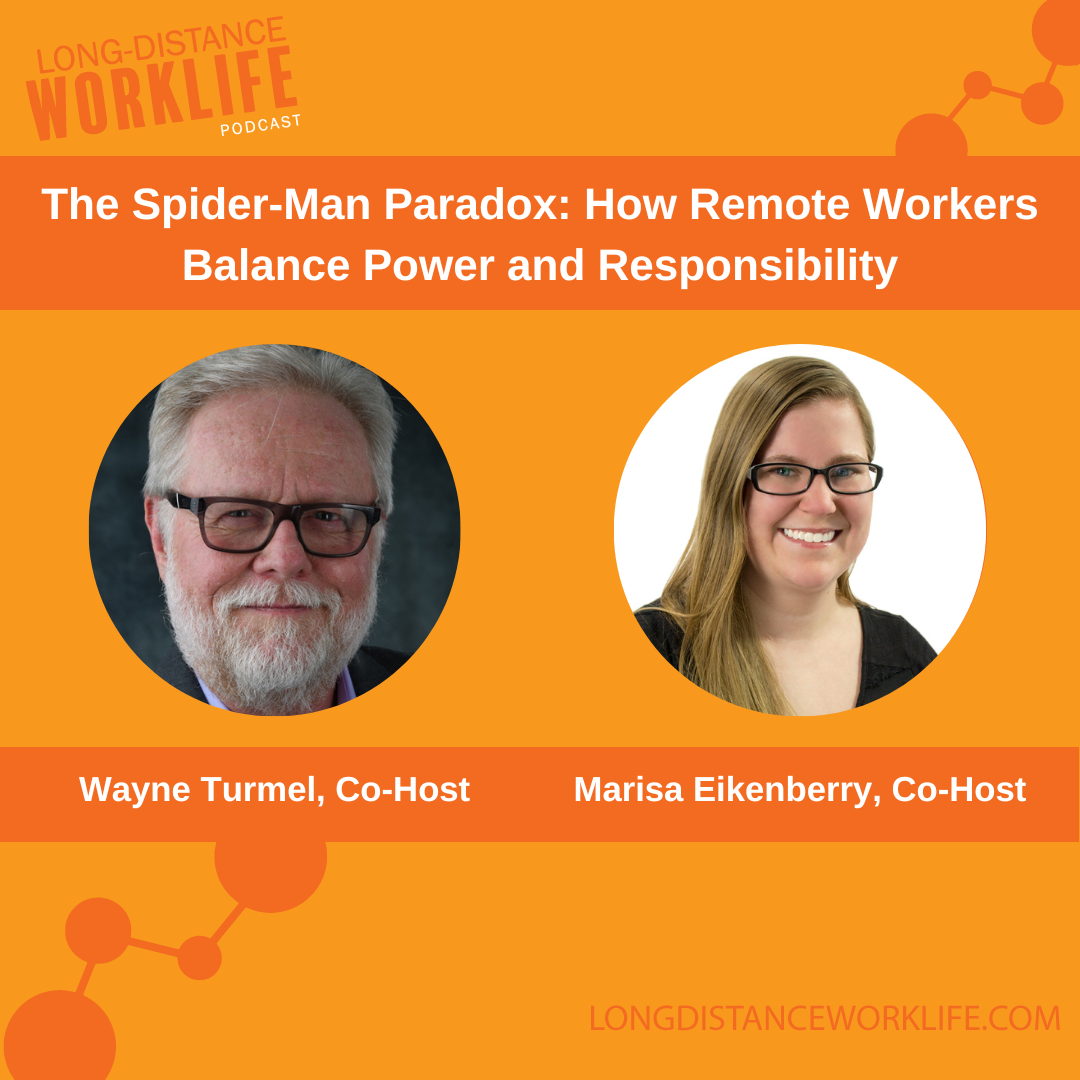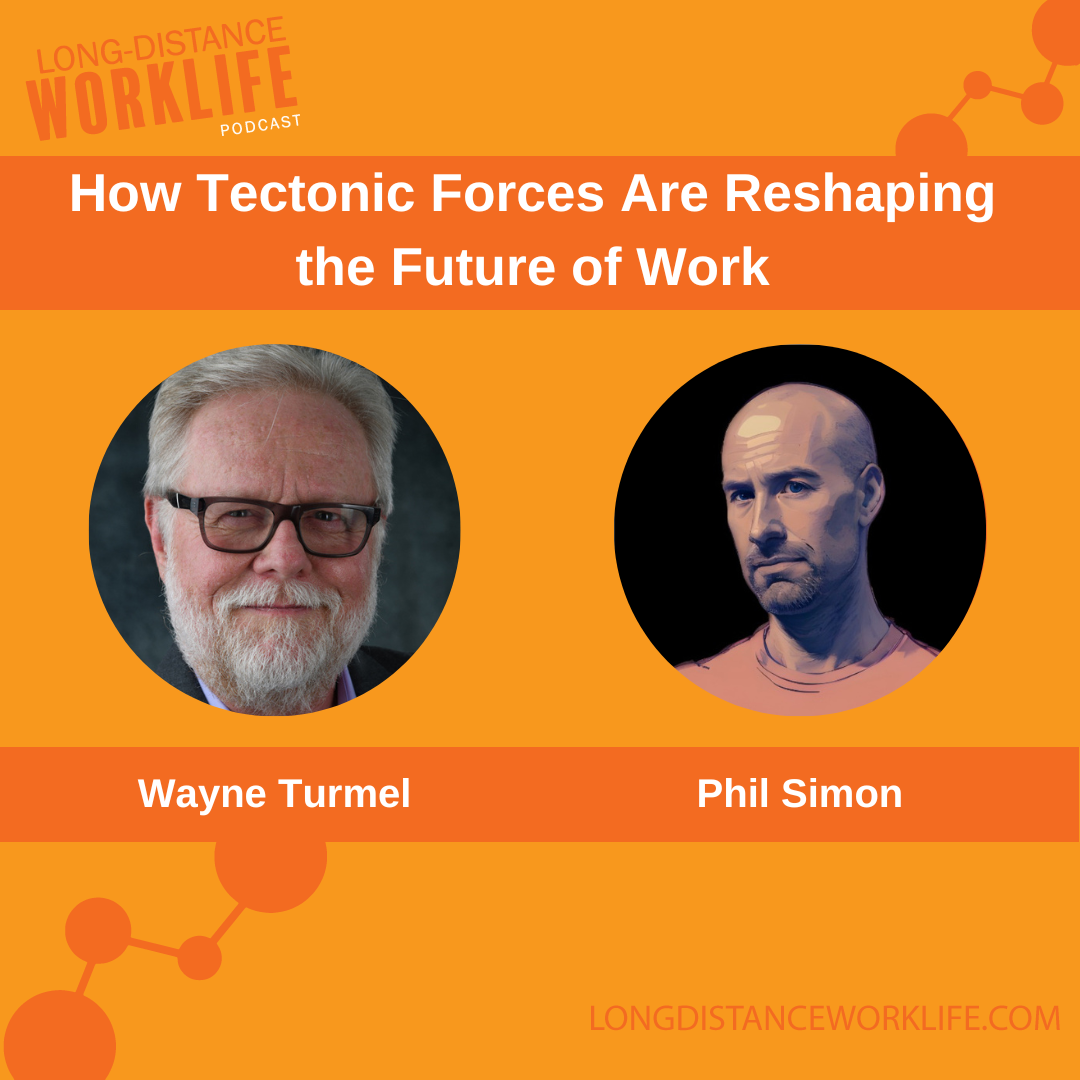Marisa and Wayne discuss pet peeves related to remote meetings. They address the issue of team members not turning on their cameras during meetings and the value of having cameras on. Wayne explains that while there are advantages to being on camera, it's important to consider the context and purpose of the meeting. For larger groups, the value of seeing everyone may be limited, but for smaller teams, having cameras on can enhance engagement and collaboration. They also discuss the responsibility of the audience to pay attention and the importance of being present during meetings.
The conversation then shifts to the topic of recording presentations and sending them out for asynchronous viewing. Wayne suggests that while this can be a useful alternative to meetings, it's important for individuals to take responsibility for engaging with the content and not simply ignore it. They also explore the idea of using asynchronous video as a form of communication, highlighting its potential benefits in terms of richness and accessibility.
Key Takeaways
1. Cameras on during meetings can enhance engagement and collaboration in smaller teams.
2. The responsibility of the audience is to pay attention and actively participate in meetings.
3. Asynchronous video can be a valuable form of communication, providing a richer experience than email or written messages.
00:00:07:21 - 00:00:19:03
Marisa Eikenberry
Welcome back to Long-Distance Worklife. Where we help you lead, work and thrive in remote and hybrid teams. I'm Marisa Eikenberry, a fellow remote worker. And joining me is my co-host and remote work expert, Wayne Turmel. Hi, Wayne.
00:00:19:05 - 00:00:20:21
Wayne Turmel
Hello, Marisa. How are you?
00:00:20:22 - 00:00:22:05
Marisa Eikenberry
I'm great. How are you?
00:00:22:07 - 00:00:27:15
Wayne Turmel
I am well, actually, this is I think this is going to be a fun conversation.
00:00:27:17 - 00:00:55:16
Marisa Eikenberry
It usually is when we talk about pet peeves. But that being said, we had some of you send in pet peeves about meeting specifically. And so we're still continuing to dive into those, including in this episode. So I'm going to start with one that we got from Facebook from Brianne and it says It's been three years since the pandemic and I would have better luck demanding that someone procure me a unicorn before getting every single team member on a call with their camera on.
00:00:55:18 - 00:01:10:22
Marisa Eikenberry
So I know that we've talked several times about if it's a town hall kind of situation. Not everybody needs their cameras on. But what about if it's a team of three or four people and you're wanting engagement? Like, what can we do to get cameras on? Should we be trying to get cameras on?
00:01:11:01 - 00:01:26:21
Wayne Turmel
Oh, man, this quest, it's so funny. Before the pandemic, we push and push And push what? Your camera on. Put your camera and get people to put their camera on. And then they did. During the pandemic, some begrudgingly, some willingly. And we were.
00:01:26:21 - 00:01:27:07
Marisa Eikenberry
Lonely.
00:01:27:07 - 00:01:48:01
Wayne Turmel
It's kind of weird because we're desperate for human companionship, and any pork in the storm is fine. But then it's kind of reverted. And I'm going to say there are two parts to this conversation, right? The first part is, are there advantages to being on camera? The answer is, of course there are.
00:01:48:05 - 00:01:49:00
Marisa Eikenberry
Of course.
00:01:49:02 - 00:02:24:23
Wayne Turmel
Right. And it's funny because most people like seeing the other party. They just don't like being on camera. Right now, it is true that the larger the group, the less value there is in seeing everybody, because we are working from home. It's also possibly true that depending on time zones and what's going on in the place that you live and work, that there may be distractions and things going on that don't work really well.
00:02:25:02 - 00:02:56:16
Wayne Turmel
You know, I just got back from the gym. You know, the kids are running around. It's lunchtime and I've got to eat. Nobody needs to see that. All of those things are the kind of excuses that we get. And you need to stop and say, Why don't I want to be on camera? Some of it is, as you know, if I'm trying to present information and out of the corner of my eye, I see four people all kind of answering emails and visibly checking notes.
00:02:56:21 - 00:03:30:11
Wayne Turmel
Well, there are two sides to that coin. The one coin, the one side is, yeah, it's this whole thing is mostly going to be me talking, and it doesn't add a lot of value because most people are going to be passively listening. So do I need to see that? The other side of that, of course, is if you can't be trusted to pay attention and focus when the camera's on, you, what makes you think I am going to trust that you are paying attention when I can't?
00:03:30:13 - 00:03:49:07
Marisa Eikenberry
Right. To your point, like I have heard about, I don't agree with this, but I have heard about people who, when it is, you know, a town hall type meeting and maybe it's something where they don't have to have cameras on or whatever. They're posting pictures on LinkedIn of, oh, look at me cooking dinner while I'm listening to this town hall or something like that feels weird to me.
00:03:49:09 - 00:03:52:12
Marisa Eikenberry
I'm sorry. And that might be an unpopular opinion.
00:03:52:14 - 00:04:23:05
Wayne Turmel
Well, it gets back to something we spoke about a week or two ago on this very podcast, which what is your responsibility when you are allowed to work from home? You are being asked to do certain things and certain things are inside your bailiwick. I have a kind of rule that if I wouldn't do it in the conference room with everybody there, why would I do it?
00:04:23:07 - 00:04:24:05
Marisa Eikenberry
Absolutely.
00:04:24:07 - 00:04:47:14
Wayne Turmel
When I'm working from home, do I you know, if I'm in the conference room, do I check my phone more than I should? Sure. I do. But I'm also there and I'm, you know, at least paying some attention to the person who's speaking. If you are turning off your camera because you don't want to get busted doing something, why are you doing something you don't want to get busted for?
00:04:47:14 - 00:04:49:08
Marisa Eikenberry
Right. Like, use your head.
00:04:49:12 - 00:05:04:04
Wayne Turmel
Yeah. I mean, one quick. Oh, somebody sends a teams message and you respond real quick. Nobody cares. Nobody cares about that. What they care about is if you are very obvious, as, like, not paying any attention.
00:05:04:06 - 00:05:04:16
Marisa Eikenberry
Right.
00:05:04:20 - 00:05:28:09
Wayne Turmel
So this becomes does the camera need to be on for all of this? Right. Is the question. Well, I think that again, where does it add value? Where it adds value is seeing people reading their body language. So on team meetings, for example. I'm a big fan of everybody has their camera on at the beginning, everybody says hello.
00:05:28:14 - 00:05:52:14
Wayne Turmel
Everybody greets everybody. And then as the meeting goes on, you know, if you need to eat, if you have something going on, right, then there's no need to be on camera because it's stressful being on camera for an hour and worrying about where do I put my hands and oh, look, I'm paying attention, but I need to look like I'm paying.
00:05:52:14 - 00:05:58:16
Marisa Eikenberry
Attention, right? Or like I really am writing notes about whatever this is, but I don't want to look like I'm not paying attention. Yeah.
00:05:58:17 - 00:06:25:03
Wayne Turmel
God forbid. I'm actually looking up and referring to something that we're talking about, right? I mean, you are a machine. When we are on meetings, if we just average the dual screens, everybody needs a Marisa anyway in their life. But, you know, if we're talking about something. And so when was that meeting that we had 30 seconds later up in the chat, Marisa will have the answer to that.
00:06:25:04 - 00:06:31:18
Wayne Turmel
She's quite wonderful about that. But if the camera was on her all the time, you see a lot of her looking off.
00:06:31:19 - 00:06:32:06
Marisa Eikenberry
Oh, yeah.
00:06:32:06 - 00:06:33:00
Wayne Turmel
So I do it.
00:06:33:02 - 00:06:39:05
Marisa Eikenberry
Because, you know, I've got a screen here, but I have a screen here too, which is usually where I've got whatever I'm looking up.
00:06:39:06 - 00:07:02:11
Wayne Turmel
Right. But if I'm paranoid about whether or not whereas is paying attention, that could be sending the wrong message. Mm hmm. Some of this is what is the responsibility of the audience? The responsibility of the audience is to pay attention, to contribute to the work to do. You need to be on camera all the time. No, you don't.
00:07:02:13 - 00:07:12:08
Wayne Turmel
And if you constantly refuse to be on camera, if this becomes a thing at some point, why?
00:07:12:10 - 00:07:13:06
Marisa Eikenberry
Right.
00:07:13:08 - 00:07:22:03
Wayne Turmel
Why don't you want to be on camera? Why don't you want to help your teammates connect with you? Well, I don't want to.
00:07:22:05 - 00:07:23:10
Marisa Eikenberry
Is not a good enough reason.
00:07:23:16 - 00:07:25:08
Wayne Turmel
It's not a great reason.
00:07:25:09 - 00:07:28:10
Marisa Eikenberry
Stop being a baby and turn camera on.
00:07:28:12 - 00:07:54:06
Wayne Turmel
Now, again, do you need to do it all the time? No. This should be something that is discussed and agreed. If you are doing a brainstorming meeting where it's really important that people see each other and make sure that we understand what the other person is saying. My rule generally is the bigger the audience, the less important it is that the passive audience members be on camera.
00:07:54:08 - 00:08:10:14
Wayne Turmel
The smaller the group. And this goes back to the richness of the communication, the smaller the group, the more active the discussion, the more we need to collaborate and cooperate, the more I want to see who I'm working with.
00:08:10:16 - 00:08:29:09
Marisa Eikenberry
Absolutely. Well, and we talked about this off off this recording, but it was this idea of, you know, well, I don't want people looking at me. I don't want my boss to see me, even if it's on a one on one. And it was like, do you walk into a conference room with a bag on your head? Because if you don't, the what are we talking and.
00:08:29:11 - 00:08:42:05
Wayne Turmel
And it also is part of your responsibility as a worker. I mean, the most common thing is, well, I'm not really dressed to be on camera. You knew there was a meeting today. And if you help.
00:08:42:05 - 00:08:45:08
Marisa Eikenberry
Out to one. Okay. But like.
00:08:45:10 - 00:09:03:07
Wayne Turmel
If the boss says, I need to talk to you for a second and you say, well, I'm not really camera ready. And she says, I don't care. I just need to talk to you for 2 seconds. That's a different conversation. But if, you know, there is a meeting at 10:00 in the morning and you're still in your pajamas.
00:09:03:12 - 00:09:06:06
Marisa Eikenberry
Get a pajamas, you're going to be done.
00:09:06:08 - 00:09:08:01
Wayne Turmel
I'm going to get judgy.
00:09:08:03 - 00:09:09:10
Marisa Eikenberry
But do it.
00:09:09:12 - 00:09:29:22
Wayne Turmel
Particularly if there are people in the office who have had to shower and dress and commute and do all the rest of that stuff. And again, you only need to be dressed from the belly button up. How lazy are you that you can't put on a shirt with buttons when you know there's a meeting?
00:09:30:00 - 00:09:51:17
Marisa Eikenberry
Right. Well, and in the interest of time, I'm going to pivot a little bit to our next question, but it's related to what we're talking about. So Mike McBride from LinkedIn says, you know, it's not necessary to have a screen full of people who are clearly reading and responding to email while others are presenting information. Just record the presentation and ask for written feedback so we can all go back to working.
00:09:51:19 - 00:09:57:04
Marisa Eikenberry
So yeah, I mean, we've talked about this secret as before. Yeah. This actually video.
00:09:57:06 - 00:10:22:00
Wayne Turmel
When you told me that this question was coming, I actually got jazzed because it's a conversation that we haven't had on this podcast and is worthy of discussion. Mm hmm. So I'm going to kind of take this in a couple of parts. You know, a bunch of people are paying attention. The message obviously isn't that riveting. They're probably making announcement of some kind.
00:10:22:02 - 00:10:25:02
Wayne Turmel
Does that need to be a meeting, period?
00:10:25:04 - 00:10:26:23
Marisa Eikenberry
Right. And that's a good question.
00:10:27:04 - 00:10:33:23
Wayne Turmel
And these are the same people, though, who say things like, I just survived another meeting. That could have been an email.
00:10:34:01 - 00:10:34:10
Marisa Eikenberry
Right.
00:10:34:16 - 00:10:50:17
Wayne Turmel
And when we talk to the managers and say everybody says this could have been an email, why did you hold a meeting? And their answer, in all seriousness and with tears in their eyes, is because nobody reads the damn email.
00:10:50:19 - 00:11:14:18
Marisa Eikenberry
I was on a meeting once, thankfully not for this company, but I was on a meeting once where they set a Google document that they wanted everybody to read, and because they could not confirm that people were going to read the document, they had a meeting where they literally verbatim read the document. Now, granted, I want to take forks and poke my eyes out, but I understood why they did that.
00:11:14:20 - 00:11:47:06
Wayne Turmel
Right. So, again, do we need a meeting to make this particular announcement? Possibly not. But what was really interesting at the end of Mike's comment is, can you just record it, send it, and ask everybody to acknowledge that they've seen it? Well, we know that that's no guarantee that anybody has actually read or understood. And it does, though, raise the specter of we're really big on asynchronous communication.
00:11:47:08 - 00:12:00:17
Wayne Turmel
Right. Send chat messages. People don't need to respond to written things right away. You can communicate this. We can contribute to meetings. You can do things. What we haven't talked about is asynchronous video.
00:12:00:20 - 00:12:03:06
Marisa Eikenberry
Which has been such a big topic lately.
00:12:03:08 - 00:12:26:21
Wayne Turmel
Well, it's funny. It's a big topic now. I remember ten years ago people telling me that video email was going to be the wave of the future that you would push a button and the camera would come on and you could say, Hey, Marisa, I need you to do this, this and this today. You know, if you have any questions, give me a call.
00:12:26:22 - 00:12:53:02
Wayne Turmel
Click set. And it was clunky and it was huge and it never really caught on because it's time consuming, right, to do that kind of stuff. But now that we work in a hybrid world, now that the bandwidth and things aren't nearly the problem that they used to be, and the fact that everybody has cameras on their phone and you don't need a great setup to do that.
00:12:53:04 - 00:13:23:14
Wayne Turmel
Is there value in making a richer form of communication than another email? I know one organization where every morning the manager records a12 minute video. Hey, good morning. I'm out of the office today. Here's what you need to know. If you need to get to know me. You can reach me here. And by the way, don't forget, we have a meeting on Friday, and I need everybody to read that thing.
00:13:23:17 - 00:13:24:12
Marisa Eikenberry
Okay, Fair.
00:13:24:14 - 00:13:51:21
Wayne Turmel
And it's very short, but she sends that out every morning. And, yeah, you can do read receipts and you can see if it's been clicked on. You can see who read it, and you can do all of that, you know, semi fascist documentation stuff. But if you develop a rhythm and if people demonstrate that they do in fact treat these messages seriously and do take the required action.
00:13:51:23 - 00:13:52:19
Marisa Eikenberry
Mm hmm.
00:13:52:21 - 00:13:59:11
Wayne Turmel
It's not a bad idea. It's something to think about. Slack, for example, could not be easier.
00:13:59:13 - 00:14:10:07
Marisa Eikenberry
Yeah. They even add captions to the video or transcripts To the video. I don't remember when they did that, but like, there's another accessibility point that isn't there in a regular meeting usually.
00:14:10:09 - 00:14:40:16
Wayne Turmel
Yeah. I mean, I'm not walking around with subtitles of clearing, of course, on my shirt, although Lord knows, I probably should. So we have these forms of communication. People are becoming more and more comfortable. Certainly generationally, people face time and do all kinds of things video wise. Tik Tok. So it's actually asynchronous video is something worth exploring, you know, even if it's a monday morning.
00:14:40:16 - 00:15:09:14
Wayne Turmel
Hi, it's Monday. Here we go, team. How are you? Right. Or if you want to send a quick message to your boss. Right. Hey, I've got a question. Can we do this? You know, it's just. But it needs to be short and it needs to be easily accessed, which means it needs to be a link in teams or Slack, something that no matter what their device on, they can click it and watch it.
00:15:09:16 - 00:15:13:19
Wayne Turmel
The more hassle it is, the less valuable it's going to be.
00:15:13:21 - 00:15:30:21
Marisa Eikenberry
Well, I was going to add on to this, too, because, I mean, you know, we were talking about video and this idea of like some people, like I don't want to be on camera or whatever, which we've already set our pieces on that. But I do know that some of these platforms also allow audio clips, too. So maybe whatever you're talking about, you don't need it to be a video.
00:15:30:21 - 00:15:43:07
Marisa Eikenberry
To your point, you know, Hey, I got a real quick thing for my boss, but it's way easier to explain it than it is to type it out here. I'll just send an audio clip really quick and then you don't even have to mess with the video part at all if you didn't want to.
00:15:43:10 - 00:16:08:02
Wayne Turmel
The problem with that, of course, is that we have an entire generation of these darn kids with their rock and roll and their Foo Fighters who don't listen to voice mail, which again, there is no excuse for that. It is a tool. It is an expectation of the job you don't like. It is not a legitimate excuse.
00:16:08:04 - 00:16:16:17
Marisa Eikenberry
Okay. But as the one of the kids with the rock and roll, if I'm not listening to voice mail, wouldn't I also not turn on a video too?
00:16:16:19 - 00:16:26:16
Wayne Turmel
Which is where Mike's point about accountable and he comes in. Right. If you don't want meetings that don't have to be meetings.
00:16:26:18 - 00:16:27:11
Marisa Eikenberry
Mm hmm.
00:16:27:13 - 00:16:42:04
Wayne Turmel
If you say I'm not an idiot, just tell me what you want and I'll do it. Then you'd better do it. Because if you don't, we are going back to entire meetings where I read the memo to everybody.
00:16:42:06 - 00:17:05:01
Marisa Eikenberry
Well, and I can't help but come back to this idea, too. And I mean, don't get me wrong, I love the idea of a here. I'll watch the video on my own time or listen to the audio clip in my own time. Like, I get all that. But regardless, the time is spent. Either way, if it's a 20 minute meeting or a 20 minute video that you watch asynchronously later, it's still 20 minutes that you have now spent.
00:17:05:07 - 00:17:26:17
Marisa Eikenberry
So it's like, is it better if it's already scheduled and you're, quote unquote, forced to do it rather than, okay, yeah, I'm going to try to make time in my schedule to watch this 20 minute video at some point, which I think sometimes might also be why some of these videos and audios and things like that don't get watched or listened to.
00:17:26:19 - 00:17:53:10
Wayne Turmel
They don't watch videos, but they don't read the email and they don't pay attention in the meeting. I mean, if you are blithely ignoring communication that's on you at some point, that's a performance management issue, right? If your boss is sending emails of your teammates or sending out emails and you start every meeting with, I didn't see that right.
00:17:53:14 - 00:17:55:17
Marisa Eikenberry
Well, how do you expect your job to.
00:17:55:19 - 00:18:04:11
Wayne Turmel
Yeah, that's a performance management issue. At that point you are not taking your responsibility. The rest of the world can only do so much.
00:18:04:17 - 00:18:06:23
Marisa Eikenberry
We can give you all the tools.
00:18:07:01 - 00:18:21:04
Wayne Turmel
We have all the tools at our disposal. There is no excuse for not getting a message anymore except time and attention. And that is on you. And that's end of the lesson.
00:18:21:06 - 00:18:25:18
Marisa Eikenberry
Yes, we could wax poetic about this for ever, but.
00:18:25:20 - 00:18:27:21
Wayne Turmel
Whatever it is that we're waxing.
00:18:27:23 - 00:18:47:01
Marisa Eikenberry
You know. Yes. So, anyway, I do want to thank Brianne and Mike for sending in their pet peeves for meetings. And we have a few more that we're going to go into. And I'm so excited to get to those as well. But, Wayne, thank you so much for talking to us about these two very important topics and listeners.
00:18:47:01 - 00:19:02:14
Marisa Eikenberry
I hope that you got a ton out of it and thank you for listening to the long distance work life for shownotes transcripts and other resources. Make sure to visit us at long distance work life dot com. If you haven't yet, subscribe to the show so you don't miss any future episodes. And while you're there, be sure to like and review.
00:19:02:16 - 00:19:14:16
Marisa Eikenberry
This helps us know what you love about our show. Feel free to contact us via email or LinkedIn with the links in our shownotes. And let us know you listen to this episode or even suggest a topic or pet peeve for Wayne and I to tackle in a future episode.
00:19:14:16 - 00:19:28:13
Wayne Turmel
And if you haven't figured it out by now, Marisa actually pays really close attention to that stuff. We are digging what we're hearing from you. So questions, pet peeves, vicious personal attacks. Bring it.
00:19:28:15 - 00:19:45:03
Marisa Eikenberry
Yes. Follow me on all the social media. I yes, I will bring you all the stuff you like to learn more about Remote teams, order Wayne and Kevin Eikenberry's new book, The Long Distance Team. You can learn more about the book at Long Distance Team Book Dotcom. Thanks for joining us. And as Wayne likes to say, don't let the weasels get you down.
Timestamps
00:00 Introduction
00:19 Discussion about getting team members to turn on their cameras
02:25 Advantages and disadvantages of having cameras on during meetings
03:30 Importance of trust and attention during meetings
04:23 Responsibility of remote workers during meetings
05:28 Value of seeing body language and greetings at the beginning of meetings
06:25 Challenges of being on camera for long periods of time
07:02 Importance of active discussion and collaboration in smaller groups
07:25 Addressing concerns about appearance and being seen by others
08:45 Responsibility of workers to be prepared for meetings
09:03 Dressing appropriately for video meetings
09:30 Importance of considering if a meeting is necessary
09:51 Recording presentations and asking for written feedback
10:22Exploring asynchronous communication and video
12:00 The value of asynchronous video communication
13:23Using short daily videos for communication
14:10 Accessibility benefits of video transcripts
15:09 Exploring audio clips as an alternative to video
16:42 Accountability and the need for meetings
17:05 Considering the time spent on meetings and videos
17:26 Ignoring communication is a performance management issue.
18:07 No excuse for not getting a message anymore.
18:47 Closing
Related Episodes
Additional Resources
- Learn more about Wayne Turmel
- Email Wayne Turmel
- Connect with Wayne Turmel on LinkedIn
- Learn more about Marisa Eikenberry
- Email Marisa Eikenberry
- Connect with Marisa Eikenberry on LinkedIn
- Purchase a copy of The Long-Distance Leader
- Purchase a copy of The Long-Distance Teammate
- Purchase a copy of The Long-Distance Team
- The Kevin Eikenberry Group
Order The Long-Distance Team
Remote leadership experts, Kevin Eikenberry and Wayne Turmel, help leaders navigate the new world of remote and hybrid teams to design the culture they desire for their teams and organizations in their new book!







